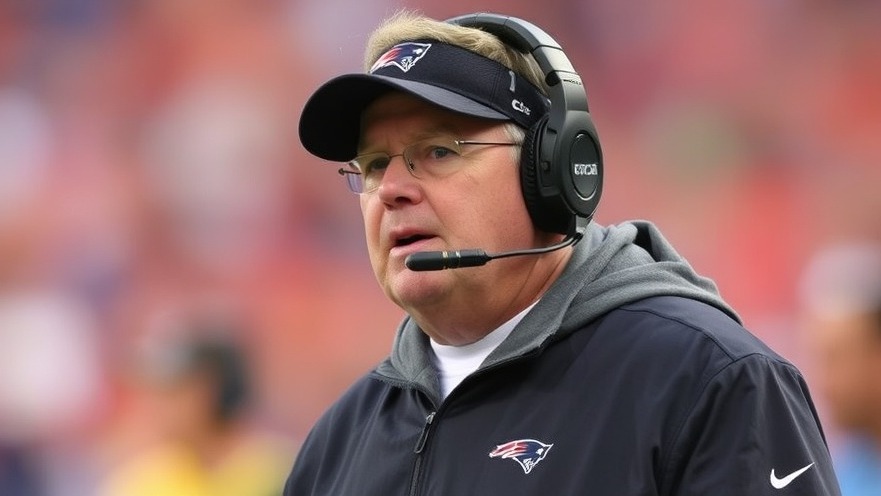
In the world of college football, the dynamics are forever shifting, especially in the wake of heavyweight matchups that draw national attention. The recent showdown between North Carolina and TCU not only set the stage for the season but also prompted intense discussions about coaching strategies and future predictions—particularly surrounding the highly scrutinized figure of Bill Belichick and upcoming star Arch Manning. With a lot at stake, we delve into what this could mean for the teams and the coaching legends themselves.
In 'More likely to bounce back after Week 1: Belichick or Arch Manning?', the discussion dives into coaching transitions and player expectations, prompting us to explore their critical implications this season.
The Impact of Week 1 Results on Belichick and Manning
When TCU decisively defeated North Carolina, many began questioning the effectiveness of Bill Belichick's coaching transition from the NFL to college football. Known for his meticulous organization and tactical prowess, Belichick’s methods came under fire after a disheartening performance against what many considered a struggling opponent.
The expectations for North Carolina were palpable, especially with Belichick at the helm, but the results were far from favorable. Observers noted his team lacked the cohesion and discipline typically associated with his NFL teams, sparking debates about whether he can adapt his coaching style effectively in the collegiate arena. Some concerned fans began speculating whether North Carolina might already be questioning their decision to bring him on board.
Lessons from the Past: Why College Football is Unique
The transition from NFL coaching to college isn't merely about switching uniforms; it involves understanding a completely different set of dynamics regarding player engagement and recruitment. College football is a volatile ecosystem where individual talent's shine becomes significantly more vital compared to the cohesive units often seen in the NFL.
For example, while Belichick’s command radiated authority in the pros, when losing significant talent to the vast roster change, he faced challenges he hadn't encountered before. The question remains: can coaching experience in the NFL translate to success at the college level? Historical trends show that established NFL coaches sometimes struggle in college, whereas rising stars who understand the landscape tend to find success much quicker.
Arch Manning: The Weight of Expectations
Similarly, Arch Manning's highly publicized entrance into the college football scene has compelled many to draw comparisons. Overshadowed by an insurmountable wave of expectations, the star quarterback’s recent performances demonstrated the challenges of living up to the Manning family legacy. His debut was met with mixed reviews, causing many analysts to rethink whether he will truly emerge as a top talent.
It’s interesting to note that even amid struggle, Manning still possesses raw talent that was evident in moments during his initial games. The narrative is warranted: how much leeway will we give to young athletes compared to seasoned coaches facing adversity? As comparisons with the likes of Peyton and Eli Manning arise, fans and analysts alike are eager to see how he evolves through the season.
Crucial Coaching Insights and Future Predictions
Coaching style significantly impacts player performance, and the reputations of both Belichick and Manning are continuing to be scrutinized. Belichick’s strategic experience may come handy in understanding defensive alignments, but he must recalibrate his expectations and adaptability in college football’s unique environment. The social pressure and atmosphere created around elite college programs adds another layer of complexity for seasoned professionals who approach the game differently.
As for Manning, while the hype continues, various experts suggest that patience is necessary. The Manning family has been adamant about the importance of a foundational understanding of college football and player development, indicating that the spotlight will remain glaring for those who come before such prestigious lines of quarterback lineage.
Actionable Insights: What Fans Should Watch For
This season, viewers should tune into several key elements beyond just the scoreline. Look out for how these coaching changes may evolve—a team’s performance is often a reflection of its leader’s philosophies. As for Manning, keep an eye on his growth trajectory; whether he can navigate the pressures of college football will not only define his career but may also set a precedent for future players coming from high-profile families.
Ultimately, the conversation around Belichick and Manning is part of a larger narrative within college football. It’s a realm where legacy, expectations, and adaptability intertwine, constantly reshaping the landscape of the sport as we know it.
 Add Element
Add Element  Add Row
Add Row 



Write A Comment